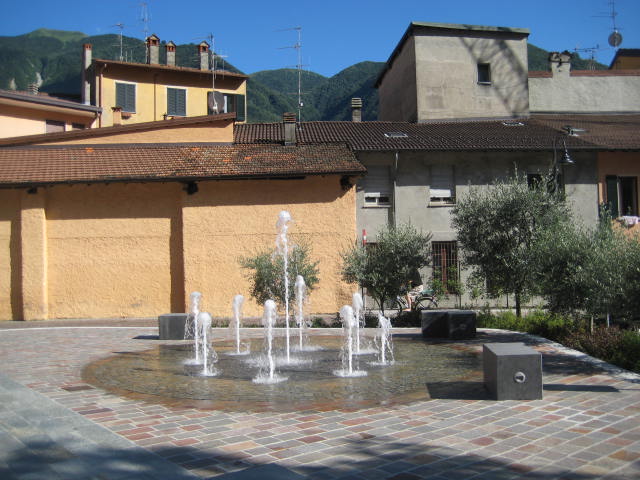Bern and Rome return to negotiating table

Switzerland says neighbouring Italy has agreed to resume negotiations on a comprehensive fiscal accord, including a crackdown on tax cheats. The move is part of Swiss efforts to get rid of its image as a haven for hidden assets.
Finance Minister Eveline Widmer-Schlumpf said she would travel to Rome for talks with Italian Prime Minister Mario Monti. However, she refused to give a date.
At a news conference on Wednesday, Widmer-Schlumpf welcomed the breakthrough, but warned of too much euphoria.
“Italy showed its willingness and we will see what the negotiations will yield. I’m confident that we can make progress,” she explained.
Widmer-Schlumpf said negotiations would cover a broad range of fiscal issues, including a withholding tax but also a controversial blacklist of Swiss companies and people compiled by Italy 20 years ago.
Bilateral relations with Italy have been strained for years not only over tax issues, but also about easing access for Swiss companies to the Italian market and a dispute over a 1974 accord on cross-border workers from the Lombardy and Piedmont regions with two Swiss cantons of Ticino and Valais.
The announcement about negotiations with Italy comes in the wake of tax agreements with Germany, Britain and Austria earlier this year. These deals still need approval by the respective parliaments.
Observers point out that France might be interested in following suit to try to get hold of additional revenue from its tax payers who have stashed away assets in off-shore accounts in Switzerland.
Right moment
Widmer-Schlumpf said a number of factors helped break the impasse with Italy.
She mentioned numerous talks at a diplomatic level since September, the willingness of the Ticino cantonal government to settle a dispute over SFr28 million ($30.4 million) in frozen income tax of Italian workers as well as pressure by local Italian authorities on the central government in Rome.
Widmer-Schlumpf added that approval in principle by the European Union for bilateral tax deals between Switzerland and Germany, Britain and Austria may have had an impact on Italy’s policy change.
Not least the fall of the centre-right government of Silvio Berlusconi in Italy last November apparently played a part.
Ticino
The Ticino cantonal government on Wednesday stressed the economic importance of a resumption of negotiations with Italy for the whole region on both sides of the border.
Marco Borradori, the head of the cantonal government, as well as Laura Sadis in charge of finances, hailed the cooperation with the federal authorities to end the dispute with Italy.
In June, Ticino froze part of the income tax collected from Italian cross-border workers in a bid to put pressure on Rome to suspend the blacklists, amend a bilateral labour treaty and end the discrimination of Swiss companies.
The decision was seen as a protest by the southern Swiss region against neighbouring Italy but also a strong sign towards the Swiss government.
Members from the Ticino government on Wednesday pointed out that a revised accord must not only cover the 54,000 Italian cross-border commuters but also Swiss citizens in Italy.
Italy is Switzerland’s second most important trading partner behind Germany. The region around the northern Italian business hub of Milan is crucial for the economy of the 300,000-strong Swiss canton of Ticino which is geographically separated from the rest of Switzerland north of the Alps.
The bilateral treaty concluded between Switzerland and Italy on the financial compensation of the border communes dates from 1974.
It requires that 38.8% of the tax taken at source from the salaries of cross-border workers is transferred by Ticino (and the canton of Valais) to Italy.
For their part, the communes do not see their share of this levy until two years later. Accordingly, they have just received the 2009 rebate.
The 340 so-called border communes in Lombardy and Piedmont are located within a 20km belt along the Ticino border.
Similar cross-border accords exist for other Swiss regions, notably Basel and Geneva.

In compliance with the JTI standards
More: SWI swissinfo.ch certified by the Journalism Trust Initiative






You can find an overview of ongoing debates with our journalists here. Please join us!
If you want to start a conversation about a topic raised in this article or want to report factual errors, email us at english@swissinfo.ch.